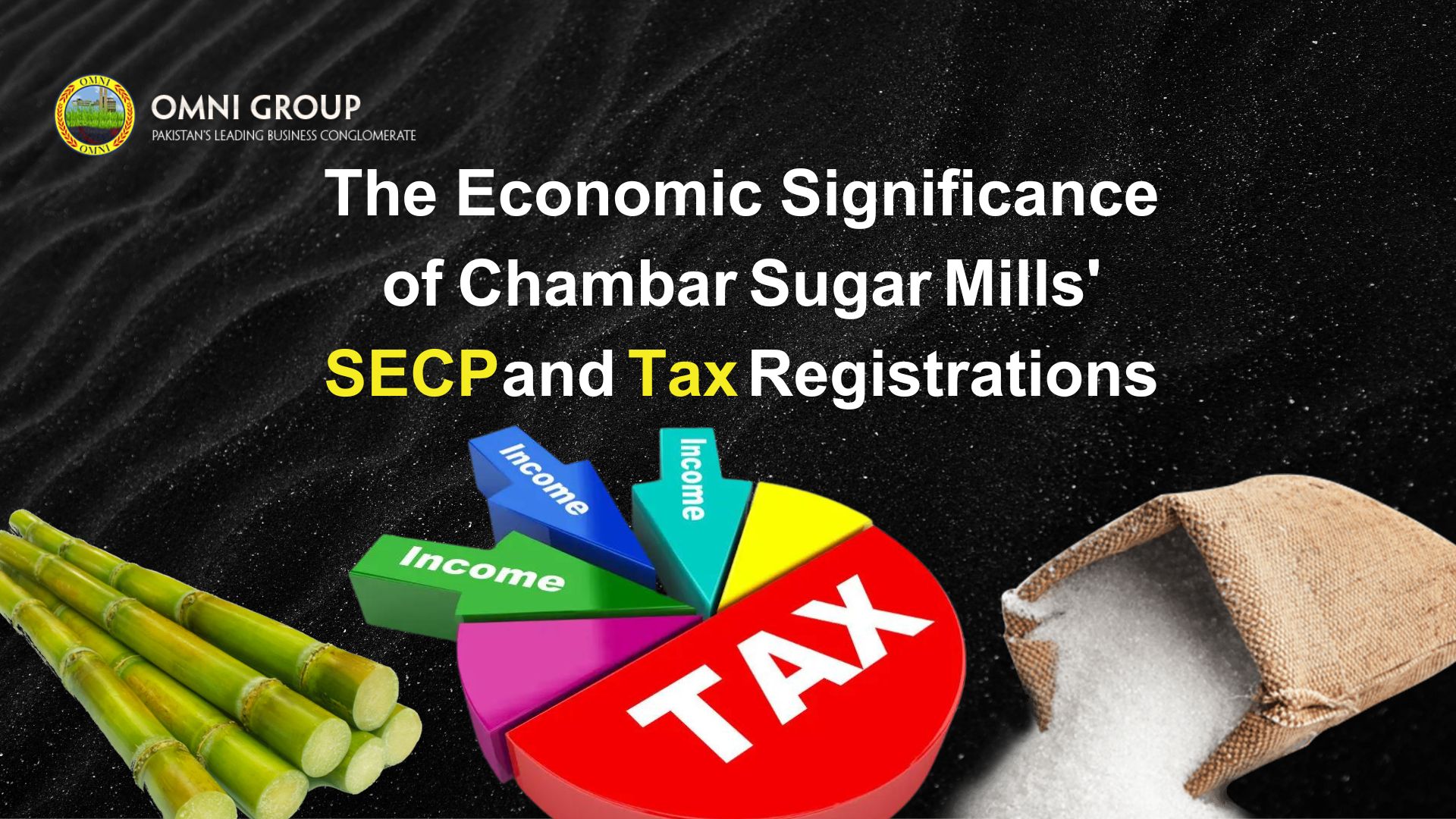
The Economic Significance of Chambar Sugar Mills’ SECP and Tax Registrations
Chambar Sugar Mills, which commenced operations in 2011, is a pivotal establishment located in Chambar, District Tando Allayar, Sindh. As an integral part of Pakistan’s sugar industry, the mill not only contributes significantly to the local economy but also underscores the importance of regulatory compliance. This article delves into the economic importance of Chambar Sugar Mills’ registrations with the Securities and Exchange Commission of Pakistan (SECP) and the tax authorities.
Boosting Economic Development in Sindh
The establishment of Chambar Sugar Mills in Chambar has had a transformative impact on the local economy of District Tando Allayar and the broader Sindh region. By creating direct and indirect employment opportunities, the mill has become a cornerstone for economic stability in the area. Local farmers benefit from a reliable buyer for their sugarcane crops, which in turn stimulates agricultural productivity and income levels in the community.
Regulatory Compliance and Market Confidence
Registering with the SECP is a critical step for any business, including Chambar Sugar Mills. This registration ensures that the company adheres to stringent regulatory standards, fostering transparency and good corporate governance. Such compliance enhances investor confidence, which is crucial for attracting both domestic and international investment. For Chambar Sugar Mills, SECP registration signifies a commitment to operating within the legal framework, thereby bolstering its reputation and credibility in the market.
Contribution to National Revenue
Tax registration is another vital aspect of Chambar Sugar Mills’ operations. By being a registered taxpayer, the mill contributes to the national revenue, supporting government initiatives and public services. The taxes paid by Chambar Sugar Mills play a part in funding infrastructure projects, healthcare, education, and other essential services. This contribution is particularly significant in a developing country like Pakistan, where tax revenues are crucial for economic development and poverty alleviation.
Promoting Fair Trade Practices
SECP and tax registrations also promote fair trade practices within the industry. Chambar Sugar Mills, by complying with these regulatory requirements, ensures a level playing field where businesses compete fairly. This not only benefits consumers through fair pricing but also fosters healthy competition, driving innovation and efficiency within the industry. Regulatory compliance thus serves as a safeguard against monopolistic practices and unethical conduct.
Enhancing Export Potential
Compliance with SECP and tax regulations also enhances Chambar Sugar Mills’ potential to engage in international trade. Regulatory adherence is often a prerequisite for export certifications and market access in global trade. By maintaining high standards of corporate governance and tax compliance, Chambar Sugar Mills can explore and expand into international markets, thereby increasing its revenue streams and contributing to Pakistan’s export economy.
Chambar Sugar Mills’ SECP and tax registrations are more than mere formalities; they are foundational to its economic significance and operational success. Through regulatory compliance, the mill not only reinforces market confidence and fair trade but also makes substantial contributions to the national revenue and local economic development. As Chambar Sugar Mills continues to thrive, its commitment to adhering to regulatory frameworks will remain a key driver of its sustainable growth and economic impact in Sindh and beyond.
